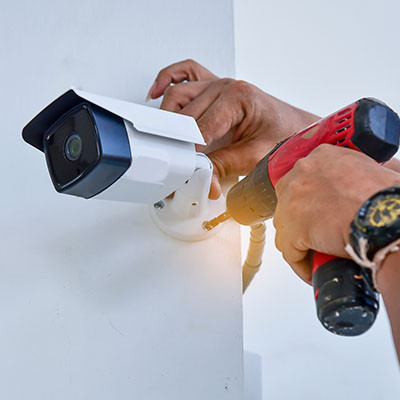Physical security is an important consideration for the modern business, and when we say “the modern business,” we mean it inclusively. Let’s take a few moments to explore how physical security solutions can benefit three very different workplace environments.
We’ll be looking at physical security solutions through the scope of three different industries: contracting and construction, healthcare (including veterinary services), and office operations.
First of All, What Is Physical Security?
The easy answer is that physical security is exactly what its name implies. Where cybersecurity encompasses the protection of your IT, physical security is the more analog concept. You are protecting physical assets from people that shouldn’t have access to them. If you are thinking of door locks and security cameras you are right on target, but modern physical security is anything but analog these days.
Modern physical security uses digital systems, Internet of Things devices, and your network’s baked-in policies to strengthen and optimize the security of your business. It makes it easy to grant and control the physical access that a person has, and lets you control and log everything for when it needs to be audited.
How Physical Security Benefits Companies in Different Industries
Physical security—those solutions meant to protect your location and the assets within from in-person threats or theft—allows businesses to shore up serious vulnerabilities that the cybersecurity solutions we recommend just aren’t able to address. Naturally, different industries will face different challenges, but the varied solutions that fall under the “physical security” label can be used to address them. For instance…
Contractors and Construction Companies
If unauthorized people are able to access the worksite, there are some significant liabilities there that could easily put a construction company in hot water. The right access control systems can help limit access to the worksite, helping you keep unauthorized people—whether they’re members of the public or workers that shouldn’t have access to certain areas—out of the places they shouldn’t be.
This not only helps to prevent accidents and injuries, it also helps to prevent theft and vandalism on the worksite.
Healthcare Providers and Veterinarians
It is no secret that healthcare providers of all kinds, regardless of what species of patients they see, need to prioritize their security. After all, different areas of their facilities will need to be locked down to protect the records and/or supplies needed by these practices.
These access control measures also enable a closer eye to be kept on the comings and goings within a practice. This, in turn, allows for the privacy of patients to be better ensured.
Modern Office Work
Different employees, fulfilling different roles, will need access to different things. By extension, this means that there are some things within a business that certain roles have no need to access outside of special circumstances. Therefore, best practices dictate that these assets be locked down. Unless someone needs access to your server room as a part of their daily responsibilities, they should not have this access.
Likewise, physical security measures can help you keep track of your team’s comings and goings, and—by syncing them with your network protections—allow you to better manage your business’ password policies.
This has been just a brief look at the value that physical security can provide to just a few industries—the real value is far greater in the application. We can help guide you through how your business could specifically benefit from these kinds of protections. Give us a call at (410) 531-6727 to learn more.



